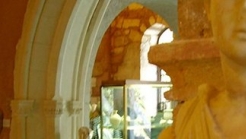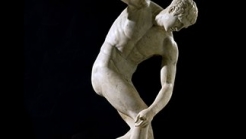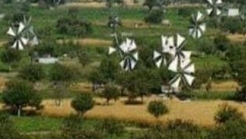

Greece
The International Festival Patras, as the main pillar of cultural life of the city!
The International Festival Patras, as the main pillar of cultural life of the city, has an illustrious history and a heavy legacy, while remaining on top of cultural events in the country, which have international scope.
The International Festival is a big celebration with quality characteristics and significant educational role. This is one of the few institutions that have a long presence and complements this year 25 years creative route.
The International Festival was founded in 1986, with initial shadows the Thano Smallish, who was the first artistic director. Gave the institution a clear international orientation by incorporating the most important festival, even outside Greece. Thano Smallish successor Vassilis Fillipatos, Ilias Andriopoulos, Notis Mvroudis, Stavros Ksarchakos and Alexander Mirat.
Having as original theme-oriented music, the nature of the festival has been extended and the areas of theater, dance, cinema and the graphic. There was scope constructive dialog and exchange of ideas, as well as venue leading cultural events.
With standard and original productions, with exclusive performances artists with international figures and with the most prominent local artists, the International Film Festival of Patras has configured a particular figure with increased validity.
In 25 years of operation of the institution, appeared in Patras leading international artists and figures such as Bob Dylan, the Philharmonic Orchestra B. B.C. , the Symphony Orchestra of Budapest, the Symphony Orchestra of Cannes and many important names of Art.
Not prevented but the Greek musicians and buskers, who left ανεξάλειπτο track at International Festival Patras: the Manos Chatxidakis, the Ohn Kseanakis,, Thanos Axarlian, Mikroutsikos, Stavros Ksarchakos, Dionysis Savopoulos, Nana Mouskouri, the unspoiled Mbaltsa, Marinella, Dimitris Mitropanos, George Ntalaras, Haris Alexiou, Giannis Parios, the Dimitra Galanis-marangoudakis ,Alkistis Protopsalti, Freedom Aparments, Giannis Kotsiras, Alkinoos Ioannidis, Marios Fragkoulis and many artists from the site of the theater, cinema and the graphic.
Event space
To the west of the Acropolis, in the Upper Town, is the Roman Odeon of Patras, which built earlier by the Conservatory of Athens (160 A.D. ).
The traveller Pausanias, who visited the Patras during the decade of 170 A.D. ,says the Conservatory had the nicest decor from all academies which had seen himself, other than that of Athens. According to Pausanias, in Conservatory, which was a continuation of the Ancient Market, there was a statue of Apollo. The statue was executed by plunder of war against the Gauls (279 B.C. ), when the people from Patras have helped the Aetolous to repel the invaders.
In the centuries that followed, the natural disasters, wars and the various conquerors destroyed the Odeon and gradually covered by infill and various buildings. From the small hill that had been created were uncovered only some parts. The Conservatory came back in 1889, when there were digging the hill to cleared the harbor.
Several decades after began the restoration process, which was completed in 1956 and so the Conservatory has acquired the original form. The same decade, the surrounding area was converted to archaeological when created report carnivore, mosaics and other archaeological findings. The Odeon is intact the essential parts of the theater: The molded depth, the orchestra, the stage, the scene, the scenes and 23 rows can be accommodated 2,300 spectators.
From the year establishing the festival, the conservatory is the main office, after hosts during the summer months leading Greek and foreign artistic assemblies.
Another area which is of particular interest is the Castle of Patras, which built beside the second half of the 6th century A.D. , on the ruins of the ancient acropolis. It was constructed by the Emperor Justinian in emperor, with materials from pre-christian edifices, its purpose being to serve as the central defense of the region's inhabitants. Situated on a low hill of, 800 meters away from the coast. The walls covered an area 22,725 sq. meters ,the castle consists of a triangular outer perimeter, reinforced with towers and bastions, protected by a deep moat and an internal boundary.
During the Byzantine period, besieged many times by the Slavs, Arabs, Bulgarians, the Normans etc. but nobody has been able to conquer. For example, the residents of the city the 805 besieged by Macedonian Slavs and the Saracens, but were rescued as a result of intervention thafmatourgiki's patron saint of the town of St. Andrew. So the two dinghies were blocked varvarikes raids in the Peloponnese.
When the Vikings captured it in Istanbul from the longer cope with the Latin in 1204 and dominated the Frankish occupation in Greece, the crusaders have extended the castle and διώρυξαν moat on all sides. 1278 was given as mortgage in Latin Archbishop, while 1408 was granted by the Pope to the Venetians to rent for five years. The castle remained the sovereignty of Latin Archibishop until 1430, when released by the Konstantinos Palaiologo. Constantine made additions to the castle and has repaired the walls that have been damaged by the passage of time.
Later,in 1828,during the revolution, the castle was liberated by the French general Maison.
When finished the German occupation, the castle was released together with the Patras 4TH October 1944. Since 1973 the Castle came under jurisdiction of 6TH Archaeological Findings Inspection dept. Byzantine Antiquities. In theater (capacity 640 seats), which is located in the inner precincts, each summer are cultural events.
Around the castle there are various construction phases, which constitute the testimony work made by conquerors for repair and for adaptation to technological developments. In fact, in a special recess in masonry, is built into a torso statue and a head man from Roman times. The statue was mythical dimensions for the inhabitants of Patras. It is the famous \"Patrinella\", the ghost of the town. Tradition says that woman was transformed into man in the years of the Turkish occupation, which safeguard the city from epidemics and crying at night, when somebody dies Patrinos.
The city of Patras has to demonstrate a remarkable institution in the field of art with influence in the world. Worthy and prominent artists are presented each year, highlighting the Patras as a eminently important cultural destination for all.


The museum is housed in the same building as the old Venetianturkey Headquarters Complex, which was within the perimeter of the Venetian castle, which was strengthened during the Turkish occupation.


The aim of the exhibition is not only to provide info on the games in ancient times, but also to initiate the visitor in what the Olympics were.


Lassithi is a part of Crete where you have the chance to meet the long history of the island from all time periods and at the same time to enjoy the incredible changes of the natural environment.
1039 Ε 6061 01515 00